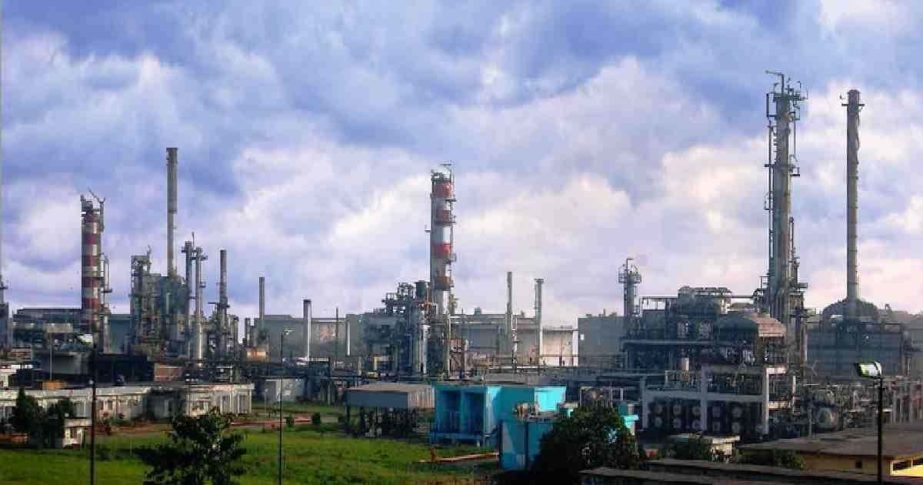
UNB, Dhaka :
Eleven years have elapsed since Bangladesh Petroleum Corporation (BPC) took the “Eastern Refinery Unit-2” project to enhance the country’s petroleum refining capacity, but there has been no headway in its implementation so far.
According to official sources, BPC is now evaluating a technical offer of Technip, a French engineering company, which was engaged through an unsolicited process for creating Front End Engineering Design (FEED) involving Tk 371.81 crore for the proposed ERL unit-2 through a contract signed in January, 2017.
“We’re now evaluating the technical offer of Technip to meet our compliances to be qualified before calling for a financial offer,” said Syed Mehedi Hasan, director, operation & planning of PPC.
“Techmip has placed some 650 observations and we addressed most of them and negotiations are going on to settle the remaining 175 of them. Now we hope we’ll be able to settle them within the current month,” he told UNB.
The Unit-2 project was taken by BPC in 2010 to enhance the company’s capacity to 4.5 million metric tons by adding 3 million metric tons from the new one.
Currently, the Unit-1, installed in 1968 by the same French company, has an annual production capacity of 1.5 million metric tons.
Technip completed the FEED for ERL Unit-2 and then placed it to BPC for negotiations.
Once the technical negotiations are completed, the financial offer of the Technip will be opened for the final negotiation to go for a contract, said the BPC director.
State Minister for Power, Energy and Mineral Resources Nasrul Hamid said he believes the evaluation and negotiations of Tecnip’s technical offer will be concluded within a week or two.
“Then the French company will be asked to submit a financial offer for negotiations. If we accept the offer, we’ll proceed to award the contract to Technip,” he told UNB.
The whole process of implementation of the ERL-2 is being done under the Speedy Power and Energy Supply (Special) Act 2010 which allows his ministry to award any contract to any company without competing the bidding process.

“We’ve preferred Technip for the project as it has a proven track record,” he said.
The BPC officials also informed that the project’s environmental impact assessment (EIA) was completed much before and they received clearance from the Department of Environment (DoE) for the project.
In April, 2016, BPC hired Indian company Engineers India Limited (EIL) for providing the Project Management Consultancy (“PMC”) for installation of ERL Unit-2 at a contract value of $16,545,000 plus Tk 82,281,025/- (inclusive of local taxes in Bangladesh such as AIT and VAT).
After the signing of the contract with BPC, the Indian consultancy firm in a media release said BPC will implement the ERL Unit-2 project spending of US 1.7 billion dollars (approx 15,000 crore in Bangladesh Taka) over the next three years.
But it is still not clear as to how much the ERL Unit-2 will cost as officials are reluctant about giving any idea on the financial involvement in the project. “Actually, we aren’t sure until we receive the financial offer from the Technip on the issue,” said a top official of the ERL preferring anonymity.
He, however, said when BPC conceived the idea of ERL Unit-2 in 2010, the project cost was estimated at Tk 13,000 crore. Then, the project’s cost was raised to Tk16,739 crore in a revised proposal.
But now, the cost may cross Tk 18,000 crore, he said adding that BPC has sent a new development project proforma (DPP) to the Planning Commission through the Energy and Mineral Resources Division (EMRD) seeking another revision to the cost.
“But the EMRD put the DPP on hold and advised us to finalise the financial negotiations to settle a cost,” said a source at BPC adding, the DPP of the ERL-Unit 2 has been amended ten times so far.
“Now the cost will depend on the financial offer to be settled through negotiations with Technip,” he said.
The last DPP of the project was submitted to the ministry in 2018 setting the project’s implementation tenure from January 2021 to December 2024.
The country consumes about 6-6.5 million metric tons (MTS) of petroleum of which 4.8-5 million MTS is imported as refined one while the remaining 1.2-15 million MTS as crude oil to refine those at ERL.

